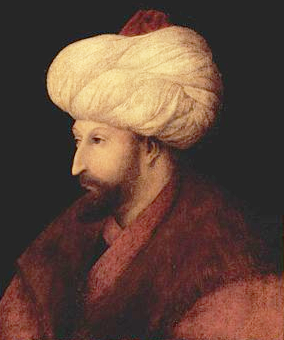M meets her by accident when his family is walking along "Swann's Way" by her house, but it begins with him practically conjuring her:
"I should have liked to see their reckoning proved false, to see, by a miracle, Mlle Swann appear with her father, so close to us that we should not have time to avoid her, and should therefore be obliged to make her acquaintance" (p.192)because she was said to be out of town, so this almost makes her like a ghost, or a spirit, or a figment of his imagination.
The meeting of Gilberte is one of my favorite parts of this volume (Swann's Way). It is full of imagery, and a dichotomy of language that is stunning. M's description of the white hawthorns (p.194) draws a comparison with the church of Combray, which I believe we will find is a main point of comparison throughout the work. The terms are architectural, and religious, but become increasingly sensual, a "hedge that resembled a series of chapels," "flowers heaped upon altars," light passing "as through a stained glass window," melds with other references like "the Lady-altar," "glittering stamens," "delicate radiating veins," "fleshy whiteness."
M lingers near the hawthorns, "breathing in their invisible and unchanging odour, trying to fix it in [his] mind (which did not know what to do with it)." He is virginal, or at the very least naive. And the flowers are white and pure, teasing him almost, "offering [him] the same charm in inexhaustible profusion, but without letting [him] delve any more deeply".
But for sensuality that's nothing compared the pink hawthorns he finds, or the reference to pink sugar, or pink cream cheese. If white is the color of purity, and red of passion, then pink is the color of budding sexuality, of pubescence. It hints at the freshness of youth and virility found in rosy cheeks and good health, but also at the beginning of menstruation, or the loss of virginity. Keeping that in mind these pages read almost like a dirty joke.
"the most expensive biscuits were those whose sugar was pink. For my own part, I set a higher value on cream cheese when it was pink, when I had been allowed to tinge it with crushed strawberries." (p.196)And my favorite, about the pink hawthorns:
"High up on the branches, like so many of those tiny rose-trees, their pots concealed in jackets of paper lace, whose slender shafts rose in a forest from the altar on major feast-days, a thousand buds were swelling and opening, paler in colour, but each disclosing as it burst, as at the bottom of a bowl of pink marble, its blood-red stain, and suggesting even more strongly than the full-blown flowers the special, irresistible quality of the thorn-brush which, wherever it budded, wherever it was about to blossom, could do so in pink alone. Embedded in the hedge, but as different from it as a young girl in festal attire among a crowd of dowdy women..." (p.197)And the question comes to mind, is this as sensual as it is, the nature as laced with sex as it is, because these are memories, and M has already shown us that no memory is without our own imprint of emotion upon it, and M was, at this time, pubescent himself, his memories from the time all tainted by the first flush of his own sexual awakening?
After standing a while in these sensually pink flowers, he meets, or rather stumbles upon, Gilberte. His memory of her, too, is tainted by his thoughts at the time. She is pink—her hair is pink, her freckles are pink, and he admits he always remembered her blackeyes as bluer because he could not "reduce a strong impression to its objective elements" (p.198).
M is already impressed by Gilberte, and by her mother. He does not understand the social mores that make his family snub her, and he is in love with the idea that Gilberte shares dinner with is favorite author, Bergotte. Seeing her now he takes every movement of hers to be contempt for him and for his family. But Gilberte, by association with the pink Hawthorns, has been drawn as at least subtly sexual, and the "half-hidden smile" she gives him while trying to avoid notice by the adults, and the "indelicate gesture" she sends him may be less contempt, more flirtatious? Gilberte's mother, after all, is behind her on the lawn with her lover, while Swann is away in Paris.
M comes to feel an obsessive reverence for Swann and for Gilberte as for the Hawthorns, an attention that may mimic the obsession Swann feels for Odette (which we learn about later in the volume, but which obviously happened before the birth of either child).

